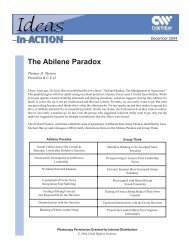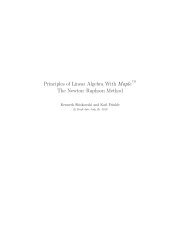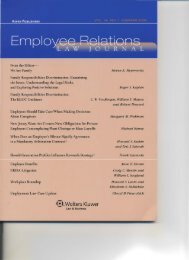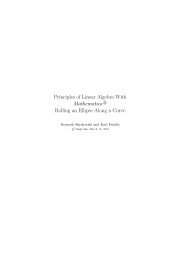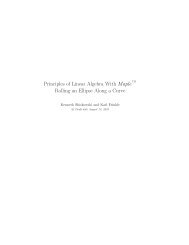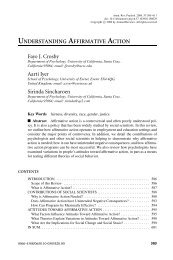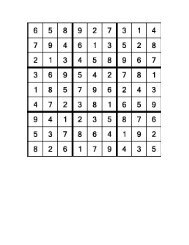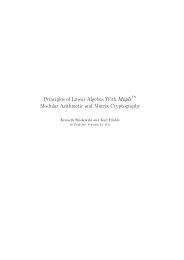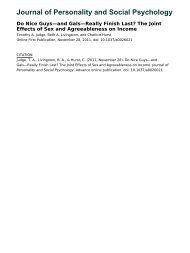www.SE.edu 1-800-435-1327 - Southeastern Oklahoma State ...
www.SE.edu 1-800-435-1327 - Southeastern Oklahoma State ...
www.SE.edu 1-800-435-1327 - Southeastern Oklahoma State ...
You also want an ePaper? Increase the reach of your titles
YUMPU automatically turns print PDFs into web optimized ePapers that Google loves.
40 <strong>Southeastern</strong> <strong>Oklahoma</strong> <strong>State</strong> University<br />
This chapter provides information and states academic<br />
policies that are a matter of public record. The purpose of these<br />
policies is to promote quality <strong>edu</strong>cation and to provide systematic<br />
and equitable administration of the academic program.<br />
Academic policies are developed by the faculty of the<br />
University and approved by the appropriate committees and<br />
councils within the University. In certain instances, policies are<br />
set by the University’s governing board, the Board of Regents of<br />
<strong>Oklahoma</strong> Colleges, and the coordinating board, the <strong>Oklahoma</strong><br />
<strong>State</strong> Regents for Higher Education.<br />
Academic Year<br />
GENERAL<br />
The academic year consists of two semesters, August<br />
through December and January through May, and a summer<br />
session in June and July.<br />
Semester Hour<br />
A semester hour consists of one class period per week in<br />
a subject for one semester, with the exception of laboratories,<br />
practicums, or physical <strong>edu</strong>cation activity classes in which two<br />
periods per week is a semester hour. In the summer session,<br />
the period of class contact per semester hour is doubled. It<br />
is the University’s policy that each semester hour represents<br />
sixteen faculty-student contact periods per term, or thirty-two<br />
hours of regularly sch<strong>edu</strong>led laboratory, or other formal course<br />
activity per term.<br />
Course Numbering System<br />
Courses are numbered so as to indicate the degree of<br />
advancement. In general, courses numbered lowest are those<br />
which should be completed first. Zero-level courses (i.e., MATH<br />
0123) are remedial and do not count as college credit hours<br />
in meeting academic/degree requirements. Courses with<br />
numbers beginning in the 1000 and 2000 series are lower-division<br />
and considered designed for freshman and sophomore<br />
students. Courses with numbers in the 3000 and 4000 series<br />
are upper-division level to be taken by junior and senior students.<br />
Courses numbered in the 5000 series are for graduate<br />
students only.<br />
Students should also be aware that the last digit of the<br />
course number indicates the amount of semester-credit-hours<br />
awarded for the course completion. For example, ENG 1113 is<br />
a three-hour course, THTR 3432 is a two-hour course.<br />
Academic Information<br />
Student Classification<br />
Students are classified according to their earned college-level<br />
credits as follows: freshman, 0-29 semester hours;<br />
sophomore, 30-59 semester hours; junior, 60-89 semester<br />
hours; senior, 90 semester hours and above.<br />
Academic Load<br />
A regular undergraduate student is classified as full-time<br />
if he/she is enrolled in twelve (12) or more hours. A summer<br />
term undergraduate student is classified as full-time if he/she<br />
is enrolled in six (6) or more hours.<br />
The maximum load that an undergraduate student will normally<br />
be permitted to carry is 18 hours per semester. Students<br />
attaining a retention/graduation grade-point average of at least<br />
3.0 and having completed a minimum of 15 semester hours will<br />
be permitted to carry up to a maximum of 21 hours during the<br />
next semester. Verification that the above criteria have been<br />
satisfied will be provided by the Office of the Registrar.<br />
During the summer session, nine hours of work is the<br />
normal maximum load. Ten hours may be taken provided the<br />
student has attained an overall grade-point average of 3.0 and<br />
has completed a minimum of 15 semester hours. Verification<br />
that the above criteria have been satisfied will be provided by<br />
the Office of the Registrar.<br />
Permission of the Dean of the School within which the<br />
student is majoring will be required for all other overload situations.<br />
In the event of dual enrollment by a student at more than<br />
one institution, the preceding load limits apply to all college<br />
courses in which the student is enrolled.<br />
Grades and Grade-point Calculations<br />
Grade Points Grade Semester Hour<br />
A Excellent 4<br />
B Good 3<br />
C Average 2<br />
D Below Average 1<br />
F Failure 0<br />
Grade Points Grade Semester Hour<br />
P Passed *<br />
NP No Pass *<br />
S Satisfactory **<br />
U Unsatisfactory **<br />
* GPA Neutral<br />
** GPA Neutral—used for zero-level courses only



